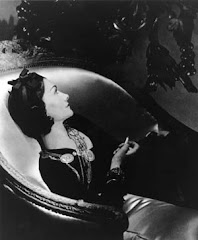Naked we come into the world, and naked we leave it. Linda Grant, whose career spans both prize-winning fiction and journalism about fashion, has written a novel about the way clothes can offer a new beginning, even in the face of bereavement.
Transformers: clothes maketh the woman Vivien, her heroine, has lost both her husband and her father in one year. Dumpy and despondent, she passes by the boutique where Eunice, her Uncle Sandor's ex-mistress, is having a closing-down sale.
Her encounter with Eunice - and her discovery of her tapes of Uncle Sandor's memoirs - lead to an account of her past.
This includes her relationship with her immigrant Hungarian parents and her wicked Uncle Sandor - a rogue inspired by the slum landlord Peter Rachman, whom her father loathes, and forbids her to see: "My parents had brought me up to be a mouse. Out of gratitude to England, which gave them refuge, they chose to be mice-people, and this condition… was what they hoped for me too. And whatever Uncle Sandor was, he was no mouse."
This vivid, enjoyable and consistently unexpected novel is like Anita Brookner with sex.
Amanda Craig in the Daily Telegraph


2 comments:
Uncle Sandor does resemble a latter-day Fagin, (as well as a pimp survivor in Primo Levi's "La Tregua" (The Truce), who is a comic contrast to Levi's own bookish character). A graphic novel by Will Eisner, "Fagin the Jew" looks at racist stereotypes, the origins of Fagin's criminality and the impoverished Ashkenazic London community of the day: http://en.wikipedia.org/wiki/Fagin_the_Jew
The Truce, and the character of the Greek in it, are amongst my favourite reading matter.
Post a Comment